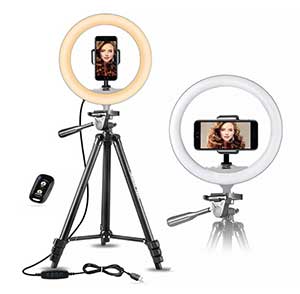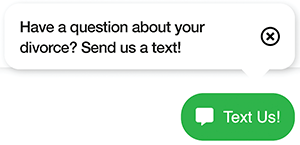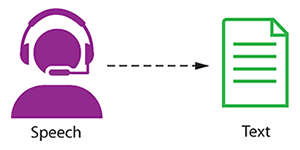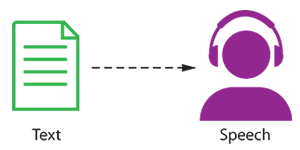
In 2020, the world had to find new ways to work, shop, and pay for products and services, and connect with clients, family, and friends. The rapid spread of COVID-19 stimulated the rapid growth and use of tech tools for family law firms – including court hearings via Zoom, sharing documents in the cloud with colleagues and clients, and Artificial Intelligence to guide and inform clients and prospective clients on a law firm’s website.
Like it or not, many of these new trends are here to stay. Family law firms who embraced the new reality have survived – or even thrived – through a year of lockdowns and crises. To help you adapt to our new reality, here are a few of our favorite new (or greatly improved) apps and tech tools for family lawyers.
1. Remote Video Recording with HD Quality

With social distancing in place due to the pandemic, in-person video recording became impossible – which halted video production for many of our clients. Luckily, new technology allows us to shoot high-definition videos remotely. We use two options: OpenReel and StreamYard. With these options, we can record quality videos featuring multiple people in different physical/geographical locations simultaneously.
For better lighting, we recommend using a ring light that comes with a smartphone holder. You can order it through Amazon for about $50).
Our videographer can remotely adjust the lighting and sound quality during and after the recording.
Compared to the traditional in-person video shoot we used to do pre-COVID, remote video recording minimizes the disruption to our client’s office. Much like virtual meetings, remote video recording may just be here to stay for certain situations. You can view a sample of a video we produced through remote recording here.
2. Kenect: Texting to Get More Prospective Clients

If you have not added the texting feature to your website, it is time to consider it. And no, you don’t need to use your personal smartphone number. With one click, visitors to your website can send you a text message along with their mobile number for your reply.
Texting allows you to instantly acknowledge the receipt of their message via a text back to the sender. It can be set up very quickly on your website, and you can differentiate messages from clients vs prospective clients. Our clients who use texting on their websites love the convenience – as do their potential clients. We recorded a video webinar on this topic with Kenect, one of the top providers of this service.
3. Speech-to-Text Apps

Don’t have time to write that blog post or article for your website? There’s an app for that!
Dragon Dictate released the first dictation software in 1990; fast-forward 30 years, and we now have Dragon by Nuance. Offering speech recognition software and apps for the legal industry (among others), Dragon Legal Everywhere’s specialized vocabulary allows you to dictate contracts, briefs, or format legal citations. Three times faster than typing, this AI-powered tool with secure encryption boasts up to 99% accuracy right out of the box.
If you would prefer to work with something you already have, look no further than your smartphone. All modern smartphones offer some kind of speech-to-text feature. For example, my Samsung smartphone allows me to dictate for up to 10 minutes, and Apple Enhanced Dictation removes Siri’s 30-second limit by adding a local file to your device so that you can dictate offline.
Google Docs voice typing is free, highly accurate, and easy to use. You can dictate an entire document and watch it being “typed” in front of your eyes. In the Chrome browser, simply go to docs.google.com, start a new document, click on the “Tools” menu, then click on “Voice Typing.” A microphone icon will appear on the left; just click on it and start talking. If you have ever used a dictaphone, you will love the ability to have what you say turned into text instantly. One caveat: your assistant or paralegal needs to review and correct some of the text and formatting, especially when it comes to legal jargon.
4. Text-to-Speech Apps

Reading aloud without stumbling is not easy for everyone – and if you have a strong regional accent, your listeners may find your speech difficult to understand. We use Google Cloud Text-to-Speech, which can convert your text into an audio file that you can use for your office phone greeting(s) and directory, or as voiceovers for your videos, or to turn your written articles into podcasts. Powered by Google’s AI technologies, the API offers 220+ male or female voices and 40+ languages with a variety of accents – or you can create a custom voice to represent your firm across all your touchpoints. Because you can select the speed and pitch of each voice, the combinations are almost endless. Be sure to avoid ones that are robotic sounding, however – unless that’s what you want. Find a few voices you like, set the pitch, speed, and accent, and stick with them. For branding purposes, be consistent: e.g., use the same voice for the firm overview on your website and for your phone directory.
Of course, Google is not the only tool that creates good text-to-speech recordings. There are any number of free and paid solutions now available, including:
- Amazon Polly: includes dozens of lifelike voices and support for a variety of languages. Amazon Polly Brand Voice can also create a custom voice for your firm.
- Linguatec Voice Reader: converts any kind of text into remarkably good quality audio files. Available in up to 45 languages depending on the version.
- Natural Reader: the Commercial version comes with 173 voices from 27 different languages. You can use the audio files for any commercial purposes, e.g., in YouTube videos, podcasts, etc.
Technology is a Great Marketing Asset
Technology expands our creativity, efficiency, and effectiveness – even in the face of a pandemic. However, you not only have to know about new technology, you also have to make it work for you. These are just a few of the tools we use to help in the marketing of our clients’ family law practices; if you would like to know more about any of them, feel free to contact me.
Martha Chan is a marketing expert for family lawyers. She is a co-owner and vice president of marketing for Family Lawyer Magazine, Divorce Magazine, DivorcedMoms.com, and Divorce Marketing Group – a one-stop marketing agency dedicated to promoting family lawyers and divorce professionals. www.DivorceMarketingGroup.com
Related Content
Mobile Apps and Software for Family Lawyers
The use of new technology is accelerating as lawyers face more and more new challenges in their practices. Here are some apps & software to consider – from B to Z!
Family Law Professionals and Technology: Survey Results
Family law professionals answer questions about the impact technology has had on their practices, and share their predictions for the future.






